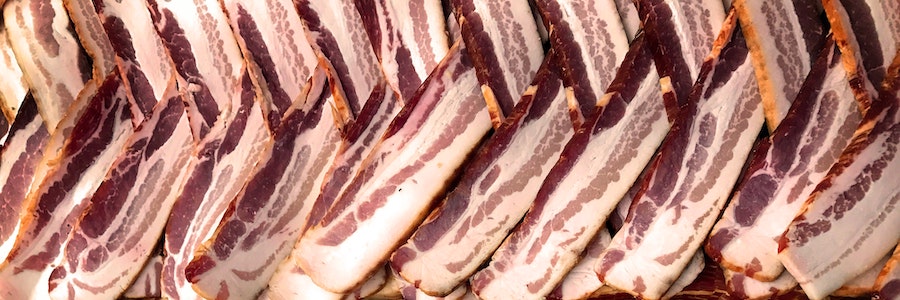Proposition 12 was approved by voters in 2018, known as the Farm Animal Confinement Initiative, which will take effect in 2022. This piece of legislation will, according to Ballotpedia.com, “establish minimum space requirements based on square feet for calves raised for veal, breeding pigs, and egg-laying hens and ban the sale of (a) veal from calves, (b) pork from breeding pigs, and (c) eggs from hens when the animals are confined to areas below minimum square-feet requirements.”
It doesn’t stop there, though. As stated on pigprogress.net, it would also affect other states. “Prop 12 also prohibits any business from knowingly engaging in the sale within the state of shell eggs, liquid eggs, whole pork meat or whole veal meat, as defined, from animals housed in a “cruel manner,” contrary to the housing standards outlined. From the start, the legislation was therefore recognised by the US pork industry as having the potential to change the entire sector.
That is, as Prop 12 is implemented in California, which represents about 15% of the US pork market, farmers in states from Michigan to Texas who supply pork to be sold in California must comply with the same rules that apply to their counterparts in California.”
This is where the EATS Act comes into play.
Rep. Ashley Hinson, R-Iowa, is introducing legislation to protect farmers who supply animal products to California.
In an interview with Fox News, Hinson stated, “It’s first and foremost harmful to our Iowa producers. They’re growing and selling high-quality pork, bacon, and eggs, and people across the country — across the world — eat Iowa bacon. I think the California liberals who move forward with this plan think that bacon just comes from the grocery store.”
Fox News explains what Hinson’s legislation means for Prop 12 and warns what could happen if California goes through with this law.

“Hinson’s legislation bans state and local governments from interfering with agriculture products from other states; reiterates the Constitution’s Commerce Clause, which empowers Congress to regulate state commerce; and creates a federal call of action to challenge California’s rule.
“But unless the courts intervene or California temporarily allows non-compliant meat to be sold in the state, the state will lose almost all of its pork supply, much of which comes from Iowa, and pork producers will face higher costs to regain a key market. California’s restaurants and groceries use about 255 million pounds of pork a month, but its farms produce only 45 million pounds, according to Rabobank, a global food and agriculture financial services company. If half the pork supply was suddenly lost in California, bacon prices would jump 60%, meaning a $6 package would rise to about $9.60, according to a study by the Hatamiya Group, a consulting firm hired by opponents of the state proposition. Price increases for pork in the state, however, may not initially impact pork buyers elsewhere in the U.S., though it is unclear what the long-term, nationwide effects of Prop 12 will be.”
To read more about the EATS Act, please visit this site







